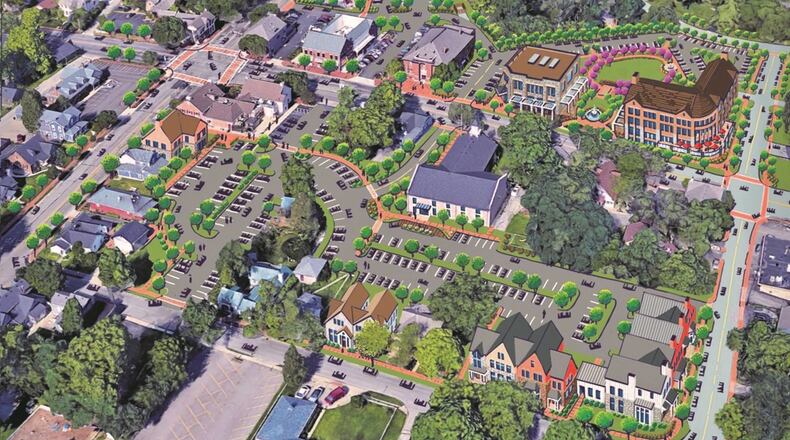The entertainment district designation is “a mechanism to get you additional permits to incentivize new investment,” said Michael Norton-Smith, Centerville development director.
“This is something that was contemplated as a specific strategy of the Uptown Action Plan,” he added. “Really, it’s been on our minds since that was approved in 2019. It’s just that we’re putting the pieces together now.”
Currently, a handful of business operators in the area hold liquor permits, Norton-Smith said. Getting approval for an entertainment district could significantly expand the number, with as many as 15 new ones, he added.
Centerville officials said they had preliminary talks Tuesday with the Ohio Department of Commerce about the process of gaining that designation.
Talks with state officials occurred after an Uptown business owner approached the city about the lack of available liquor permits, Centerville Communications Director Kate Bostdorff.
A message left with that owner was not returned before press time.
The city has one entertainment district, Bostdorff said. It was created at Cornerstone of Centerville several years ago.
If the application for the entertainment district is successful, a Designated Outdoor Refreshment Area, or DORA, may be pursued, Bostdorff said.
A drinking area allows open containers of alcohol outside whereas an entertainment district provides more liquor permits, Norton-Smith said.
Once an entertainment district application has been presented, approval could take about four months, he added.
It would have to be presented and approved locally after a public hearing, he said. Then the state would review it and establish “the boundaries and (allocate) the additional quota of liquor permits.”
If the state approves it, local businesses could apply for the additional permits and they would be awarded on a “first-come, first-serve” basis, Norton-Smith said.
About the Author

